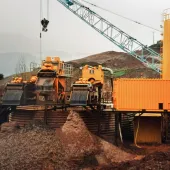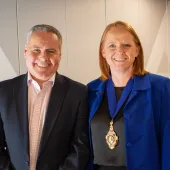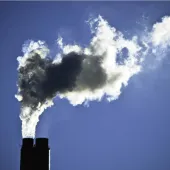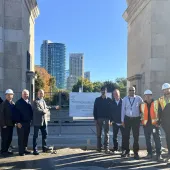Boral trials carbon capture concrete in Australian first
Boral has successfully trialled a concrete mix using recycled aggregates recarbonated through carbon capture technology at its Berrima cement plant in New South Wales – the first trial of its kind in Australia.
The process saw recycled aggregates from Boral’s Widemere recycling facility used to capture and permanently store CO₂ from the flue gas at Berrima’s newly commissioned recarbonation-based carbon capture and storage (CCS) pilot plant. These recarbonated aggregates were then used to replace half of the natural coarse aggregates in Boral’s low-carbon Envisia concrete during a field trial at its Maldon facility.
According to Boral, the trial demonstrates a practical pathway to reduce the embodied carbon of concrete by both capturing cement plant emissions and reducing reliance on virgin aggregates. The project was co-funded by the Australian Government’s Carbon Capture, Use and Storage Development Fund.
Dr Ali Nezhad, Boral’s head of sustainability and innovation, said the trial showed how recarbonated aggregates could “enhance the viability of recarbonation-based carbon capture technology” while offering further reductions in embodied carbon.
Boral chief executive Vik Bansal added that recarbonation would play a key role in the company’s long-term decarbonisation strategy: “Alongside significant investments in alternative fuels and materials to decarbonise our cement operations in the short term, we remain committed to exploring technologies like carbon capture and storage as part of our long-term journey towards net zero by 2050.”
Recarbonation is a natural process where concrete absorbs CO₂ over its lifetime and when crushed at end of life. The CCS pilot at Berrima accelerates this by exposing recycled aggregates to controlled conditions, providing a low-cost route to carbon storage.
Studies cited by the UN’s Intergovernmental Panel on Climate Change estimate that recarbonation of concrete can absorb between 20% and 55% of process CO₂ emissions from cement manufacturing.
The company says the success of its CCS trial further validates recarbonation’s role as a practical decarbonisation tool for cement and concrete production.
More information: Boral recarbonation.







